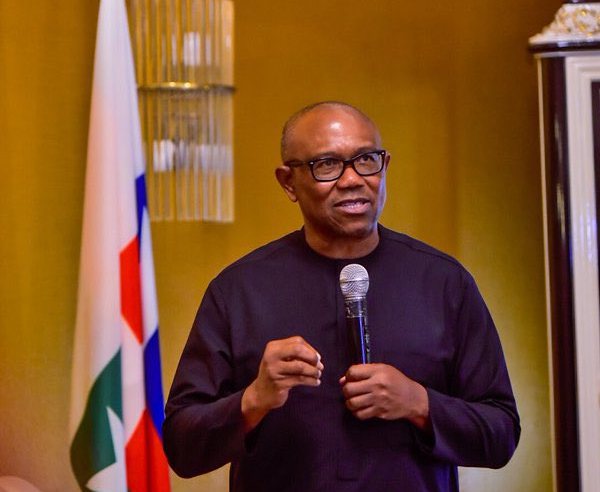The presidential candidate of the Labour Party, Peter Obi, has disclosed that he will fix the 28 million housing deficits, at the cost of N60 trillion if elected president of the country in 2023 election.
Newsonline reports that Obi said Nigeria is at a critical juncture in issues of housing and shelter which must be addressed to meet national goals.
The Labour Party presidential candidate stated this on Friday at an event by the Nigeria Institute of Architects in Calabar, Cross Rivers State.
Speaking on the topic “Housing and Design Excellence for National Development” the former governor of Anambra State thanked the Nigeria Institute of Architects for the kind invitation.
He disclosed that addressing the 28 million housing deficit, at the cost of N60 trillion would require a committed leader to be at the head of affairs.
Peter Obi said, “As you know we have high and severe housing deficits. We now stand at a juncture where 28 million houses must be built to meet our national needs. This will cost us an estimated 60 trillion.
“We will need to partner with you. Our role will be to create the enabling environment via the right of making laws; regulating and preserving of property; employing the force of the community; and public good.”
READ ALSO: Ukraine War, Covid-19 Not To Blame, Peter Obi Reacts To NBS Poverty Report
He further added, “But before harping on these points, I must delve into two critical variables – vision and commitment. What is grossly missing in Nigeria’s leadership, governance and economic realm, is the lack of efficiency.
“Good governance and a prosperous and a stable economy are routinely anchored on sectoral and holistic pursuit of efficiency. More fundamentally, we must aspire to put in place a leadership that is imbued with competence, capacity, credibility and commitment.
“These 4 Cs, are leadership competencies required to turn Nigeria around. We will pursue intangible assets of good governance, rule of law, security of lives and properties. For this to happen there must be elite consensus on critical national interest questions.
“We are aware that our existing national infrastructures are decrepit and crumbling. We are housing-challenged. We have as a nation been inconsistent in our infrastructural planning and funding. This is an area we must tackle urgently.
“We must start with rethinking the fundamentals of our nationhood and how to collectively unite and secure Nigeria and move it from good to great. Good governance simply translates to eight critical governance values, namely; a government being Accountable, Transparent, Responsive Equitable and Inclusive, Effective and Efficient; and adherence to the rule of law, as well as participatory and consensus-oriented governance.
“The Obi-Datti administration, from its inception, will continue to encourage investment in infrastructure—housing, energy, transport, irrigation, and telecoms—to grow these and other sectors.”
“We are eager to quickly close the infrastructure gap between now and 2030. That is the Nigeria we want in place by the U.N. Sustainable Development Goals (SDGs) target year.
“Nigeria is poised to lead African countries as we leverage more private funds to meet our continent’s infrastructure financing needs. Those needs are estimated to be between $68 billion and $108 billion annually.
“We will pull and pool resources for our housing needs from domestic and foreign sources. However, since charity begins at home, we will realize these by using current oil earnings to invest in critical physical and human infrastructure, including housing while intensifying domestic resource mobilization for recurrent expenditure. We will diversify the funding for our national surface transportation system (Roads, rail, bridges and mass transit) and programmes with the creation of the Highway Trust Fund Accounts,” he concluded.














